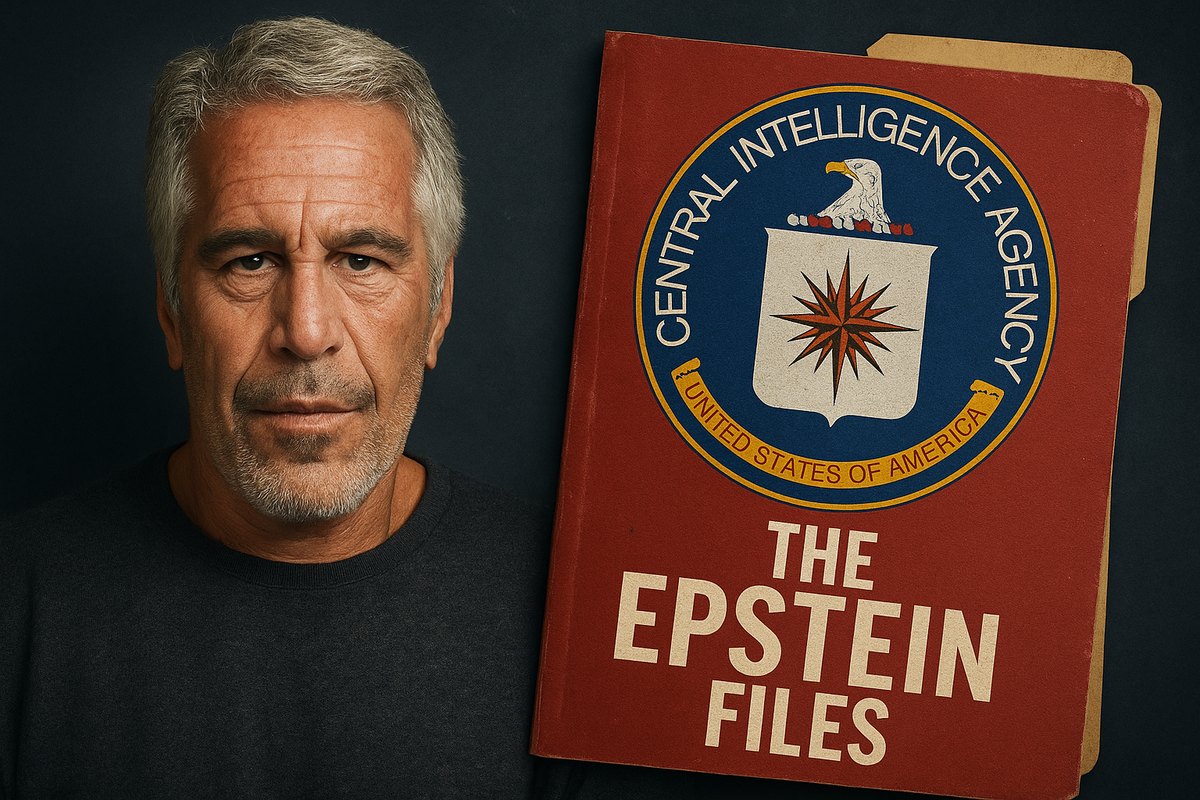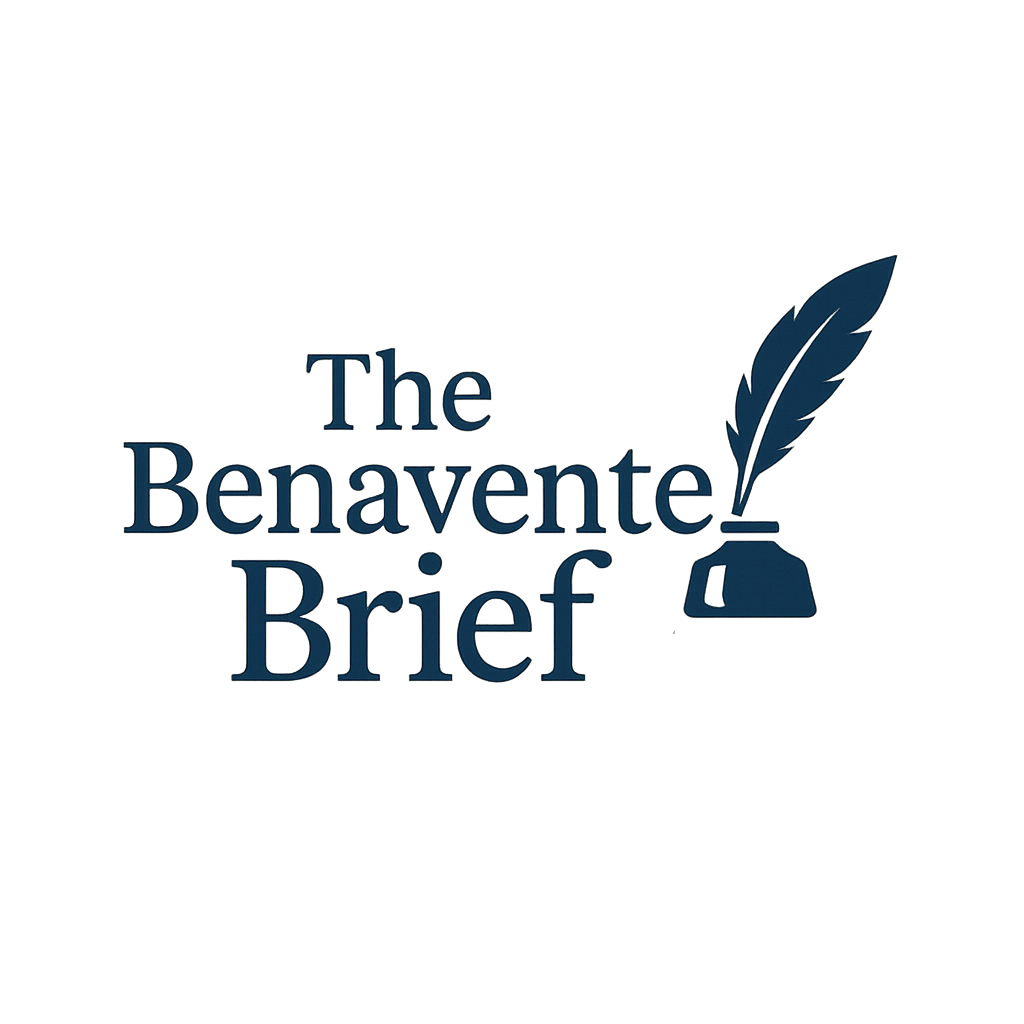Andrew Bustamante Breaks Down Epstein, Metadata, and Government Control
Espionage, Epstein, and the Illusion of Privacy: What Intelligence Experts Aren’t Telling You -Rafael Benavente

based on the transcript of the interview, here's a blog summarizing the key takeaways from the discussion around Jeffrey Epstein, intelligence operations, Snowden, and privacy tradeoffs in the post-9/11 world:
Espionage, Epstein, and the Illusion of Privacy: What Intelligence Experts Aren’t Telling You
In a gripping interview, a former intelligence operative breaks down one of the most enduring conspiracies of our time — the mystery of Jeffrey Epstein — and places it in the broader context of how intelligence operations actually work. But this isn’t just about Epstein. It’s a wake-up call about surveillance, secrecy, and how much power governments are willing to wield in the name of national security.
Epstein: More Than Just a Predator?
The conversation starts with the puzzling reality that Jeffrey Epstein — a man without meaningful credentials — was able to infiltrate elite circles and handle vast sums of money without explanation. Add to that the revelation that his mentor was connected to the OSS (precursor to the CIA), and the puzzle becomes even more intriguing.
Could Epstein have been a foreign intelligence asset? The theory goes like this: if a state like Israel saw him as a valuable tool for blackmailing powerful people, they may have had leverage to protect him — even after convictions. From strange plea deals to the thousands of tapes allegedly uncovered, the pattern looks less like a criminal enterprise and more like an organized intelligence operation.
Intelligence Work Isn’t What You Think
The guest draws a clear line between how Hollywood portrays spies and how the real machinery works. Pre-9/11, the CIA operated with astonishing independence. There were no unified oversight agencies, no DNI, and limited accountability. This environment gave rise to rogue operations like MK Ultra and Operation Midnight Climax — and potentially, covert efforts targeting both foreign and domestic threats under dubious moral cover.
Since 9/11, changes like the creation of the Director of National Intelligence (currently held by Tulsi Gabbard in this fictional context) have centralized oversight. But that doesn’t mean we’re any less vulnerable to abuse.
Convenience vs. Security: You Can’t Have Both
The most insightful part of the conversation is the breakdown of the “security vs. convenience” spectrum. The closer a society gets to security, the further it gets from personal privacy and freedom — and vice versa. Surveillance tools like Real ID, Palantir, and broad metadata collection reflect this tradeoff.
You might not notice it in daily life, but metadata tells a story: who you talk to, when, where, and how frequently. And while your actual conversations may remain private, patterns in metadata can be used to infer dangerous associations — including suspected terrorist links — and trigger deeper investigations.
Edward Snowden: Hero or Traitor?
Snowden, the guest argues, isn’t a hero — not because he revealed the truth about mass surveillance, but because he allegedly compromised unrelated intelligence operations by working with hostile nations. While his leaks exposed real issues — like domestic metadata collection — the method he used may have done more harm than good.
What’s especially telling is how Snowden bypassed traditional whistleblower protections in favor of public disclosures. While some civil courts ultimately ruled parts of the NSA’s programs illegal, the classified courts that originally approved them believed they were necessary for national security.
Final Thoughts: Trust and Power
This interview leaves us with deep questions:
- How much freedom are we willing to sacrifice for safety?
- Can we trust our intelligence agencies to stay within legal bounds?
- And perhaps most chillingly: if Epstein really was part of a covert op, how many more like him are still in play?
In a world where data is power and surveillance is the norm, the balance between liberty and security grows more fragile by the day. And while the public argues over heroes and villains, the real decisions are made behind closed doors — in the name of protecting us.
Credits:
Special thanks to Andrew Bustamante, former CIA officer and host of the EverydaySpy YouTube channel, for sharing these valuable insights. His interviews offer a rare, behind-the-scenes look into intelligence, espionage, and the psychology of power.
👉 Highly recommended: Check out his channel here – EverydaySpy with Andrew Bustamante.
